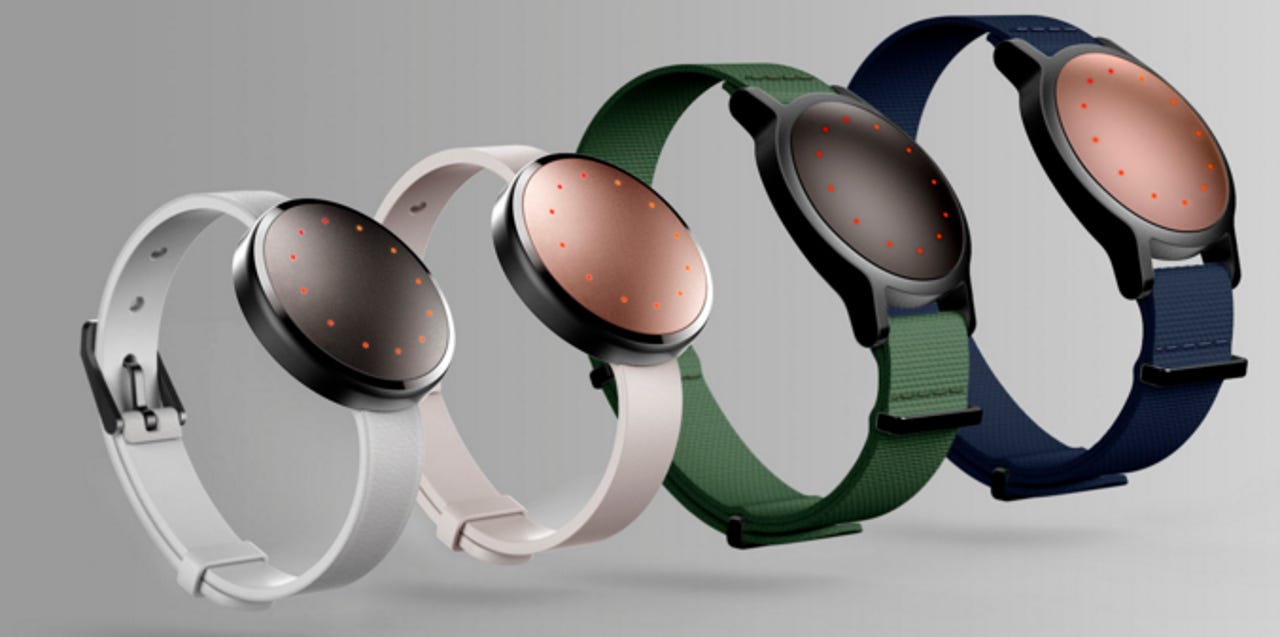Fossil's $260 million purchase of Misfit will kick off wearable consolidation


Fossil's move to buy fitness tracking company Misfit for $260 million is likely to be the starting gun in a race to consolidate.
There are too many fitness wearable players and the reality is that the technology is likely to be included into most watches. Timex's move to include step tracking in its Metropolitan watch highlights where things will go.
Special Feature
Misfit's best move was to be a first mover as things consolidate. Fossil's acquisition gives Misfit more capital to grow. Fossil gets a cloud and app platform that would have taken years to build and largely be a me-too effort.
In a statement, Fossil said that Misfit's technology will be integrated into its products in 2016. The biggest reason Fossil can move so quickly is that Misfit runs on a battery watch and doesn't need to charge.
The deal was part acquihire too as Misfit founder Sonny Vu will become CTO of Fossil and lead the wearable effort.
How data screwups may decide the fitness tracker wars
As noted previously, data management may ultimately win the fitness wearable game and Misfit and Fossil mutually gain by merging. For instance, Misfit's technology will scale via the Fossil deal since the watchmaker has a stable of its own brands, but also licenses to Michael Kors, Emporio Armani, Armani Exchange, Diesel, Marc by Marc Jacobs, Karl Lagerfeld, Tory Burch, adidas, and DKNY. Misfit may wind up embedded into most watches.
Related: Microsoft Band 2 review from a first-time fitness band user | Fitbit's enterprise plan: Delivering real returns on employee wellness | Wearables: Fit For Business? | CNET's Smartwatch and fitness tracker buying guide and latest reviews
When you couple the Misfit-Fossil merger with Under Armour's move to buy up fitness apps it's not too hard to connect the dots. The big questions: What fitness wearable company is acquired next? And what company will be left out?
Here are a few thoughts:
Fitbit. The company is doing relatively well, building an enterprise business and has bucked the trend to be assimilated into some smartwatch. Fitbit can thrive on its own for a while, but ultimately the company could be premium brand in a larger empire. Under Armour has the data, the complementary (and already connected apps) and may decide it needs a hardware brand. Fitbit and Under Armour would be an interesting fit. Nike may also want to get into the wearable game. A Fitbit acquisition would take time to play out and there's no rush, but the Fitbit's $6.5 billion valuation isn't too hard to digest for many tech players. Also:
- Under Armour's digital product plan to be fleshed out
- Will Under Armour's big data, app experiment pay off?
- How Nike thinks about app development: Lots of micro services
- Under Armour buys MapMyFitness in $150 million wearable computing play
Jawbone. This iconic fitness tracking and speaker maker has so much history (not to mention funding) and is clearly struggling. If Jawbone could have gone public it would have. Instead, Jawbone is spending its time suing Fitbit like a bitter company who has fallen behind the pack. It's not clear what it would take to buy Jawbone, but the app design team is clearly worth something. If Apple can buy Beats perhaps it'll take out Jawbone too. Google may also be interested and so would a company like Huawei. However, there may be better returns in allowing Jawbone to struggle and then hire away the expertise and later acquire patents.
Garmin. Looking for a well-established, well-run company that's valued about the same as Fitbit and has been in the fitness market forever via running watches? Give Garmin a spin. Garmin has fitness trackers, running watches and core GPS technology that's used in everything from fishing to boating to aviation to auto. Garmin may be an odd fit for a company like Under Armour or Nike since it would bring a bunch of businesses that wouldn't apply. But Garmin's capabilities could fly for multiple technology companies. Simply put, Garmin could be a nice Internet of things play. Perhaps the fitness business is spun out in a deal.
Pebble. While Pebble isn't a traditional fitness brand, the company would be a fine acquisition for any company that makes traditional watches today. It's unclear what Pebble would go for, but perhaps a brand like Timex would be interested.